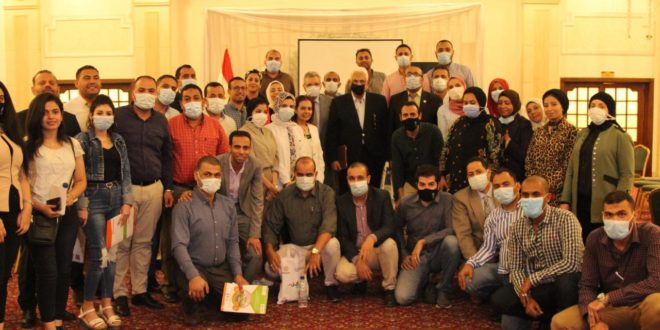Dr. Badrawi delivers the second lecture in the Be an Ambassador program to train the youth of the Good Life Initiative, entitled:
Positive energy creates positive events.
It explains decentralization and the importance of management governance
——————————-
At the invitation of the Ministry of Planning and Economic Development, Prof. Dr. Hossam Badrawi delivered the second lecture within the “Be an Ambassador” initiative, with the aim of rehabilitating the youth of the institutions participating in the Dignified Life Initiative.
The Ministry of Planning and Economic Development, in cooperation with the National Institute for Governance and Sustainable Development, had launched training activities for a specialized group of the Be an Ambassador initiative with the aim of qualifying young people to implement sustainable development. In the first week of this group, 123 trainees participated, including 56 women from the institutions of a decent life, Misr El Kheir, Caritas City Aswan University, Rotary Club.
Under the patronage of Dr. Hala Al-Saeed, Minister of Planning and Economic Development
A decent life initiative launched by President Abdel Fattah El-Sisi on January 2, 2019 to improve the standard of life for the most needy community groups at the state level during 2019, and also contribute to raising the level of daily services provided to the neediest citizens, especially in villages.
Dr. Badrawi spoke about the importance of developing education and applying decentralization in achieving sustainable development in governorates and villages
He said that decentralization is not a decision that is implemented in a moment, but rather a cumulative development of the method of management that takes a time that may reach twenty years until we reach full decentralization, citing the French experience in that.
Dr. Badrawi explained Egypt’s Education 2030 vision and its five pillars, which consist of:
The first pillar: accessible education for all, of high quality, without discrimination.
The second pillar: The existence of an efficient, fair and sustainable institutional framework for the management and governance of the education, research and development process at the central level, down to the decentralized level in the governorates, to the management of schools.
The third pillar: Technological and digital empowerment of the student, student, teacher and teaching staff in the school and university, and the development of teaching methods and methods, research and evaluation. This was demonstrated by the health crisis and the closure of educational institutions.
The fourth pillar: Building the integrated personality of the student and student in all its aspects, to become a normal citizen, proud of himself, enlightened, creative, proud of his country and its history, passionate about building its future, capable of difference and capable of pluralism. Note that this cannot be done without culture, art, music and exercise.
The fifth pillar: The graduate should be an initiative, have the ability to adapt to the changes around him, create new job opportunities, and be able to compete with his peers at the local, regional and global levels.
After the speech ended, Dr. Badrawi opened the discussion and interacted with the attendees to answer their inquiries, and the attendees were keen to take a group photo with Dr. Hossam at the end of the meeting
Watch the full lecture
 Dr. Hossam Badrawi Official Website
Dr. Hossam Badrawi Official Website


